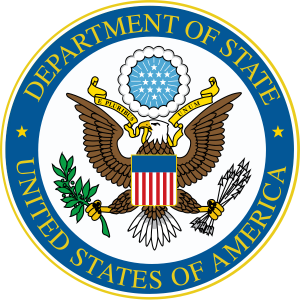 Washington, D.C. – The U.S. Department of State released the 2012 International Religious Freedom Report on Monday, which summarizes the most concerning instances of religious oppression around the globe.
Washington, D.C. – The U.S. Department of State released the 2012 International Religious Freedom Report on Monday, which summarizes the most concerning instances of religious oppression around the globe.
The 23-page document is the 14th annual report of its kind, and is a fulfillment of the October 1998 International Religious Freedom Act. While the report touches on a variety of topics, the primary focus is on countries which violate basic religious freedoms.
Overall, the report paints a rather grim picture for worldwide religious freedom. In fact, the report’s introduction admits that “[t]he right to religious freedom … was challenged in myriad ways in 2012.” Furthermore, the document suggests that “some common themes” have been identified in oppressive countries, and these patterns are not limited to any one particular country or region.
“In general, these themes reveal negative trends,” the report states, “and often cut across national and regional boundaries.”
Following the introduction, a region-by-region breakdown of religious rights violations is provided, which lumps together some of the most oppressive countries based on geographical location. By far, eastern Asia received the most attention in this section of the report, due to repeated infringements on basic religious freedoms.
Of these eastern Asian countries, China is most strongly reprimanded. In addition to violations against Uighur Muslims, the report identifies violations against Catholic clergy and Christian home churches in China. The document mentions one Christian home church in particular, where seven members were officially indicted by the Chinese government as a result of dubious charges.
Other Asian countries of particular concern are North Korea (where members of underground churches have reportedly been “arrested, beaten, tortured, or killed”), Vietnam (where unregistered religious groups are vulnerable to harassment), and Burma (where authorities closely monitor and restrict religious activities).
Even though other regions did not receive as harsh reprimands from this report as eastern Asia, the Middle East was also cited as an area where basic religious freedoms were found to be lacking. For instance, in Saudi Arabia, “the public practice of any religion other than Islam is prohibited.” Additionally, the report criticizes Iran for—among other things—punishing U.S.-Iranian pastor Saeed Abedini. As previously reported, Abedini has been harshly disciplined for leading a network of Christian home churches.
Toward the middle of the report, three long paragraphs (which comprise roughly 7% of the entire paper) fall under the heading, “A Continued Rise in Anti-Semitism.” Not only does the report acknowledge the continued, growing problem of anti-Semitism, but it even mentions that “Holocaust denial and glorification remained troubling themes” in many countries.
“Of great concern were expressions of anti-Semitism by government officials, by religious leaders and by the media, particularly in Venezuela, Egypt, and Iran,” the report explains.“At times, such statements led to desecration and violence.”
Toward the end of the document, there are updated descriptions of the countries former Secretary of State Hillary Clinton recently deemed “countries of particular concern,” due to chronically high levels of religious freedom infringements. Of these eight countries, six (Burma, China, Iran, North Korea, Saudi Arabia, and Uzbekistan) are located in Asia and two (Eritrea and Sudan) are in Africa.
Shortly after the International Religious Freedom Report was released, Secretary of State John Kerry gave a brief presentation, highlighting various aspects of the report, and reaffirming where the United States stands on the topic of religious freedom. In his remarks, Kerry stated, “Freedom of religion is a core American value. It’s one that helped to create our country.”
Kerry went on to point out that freedom of religion is not only an “American invention,” but rather “a universal value.” He also declared that promotion of religious freedom is a priority for him, as well as Barack Obama, and that it remains an “integral part of our global diplomatic engagement.”
Become a Christian News Network Supporter...


